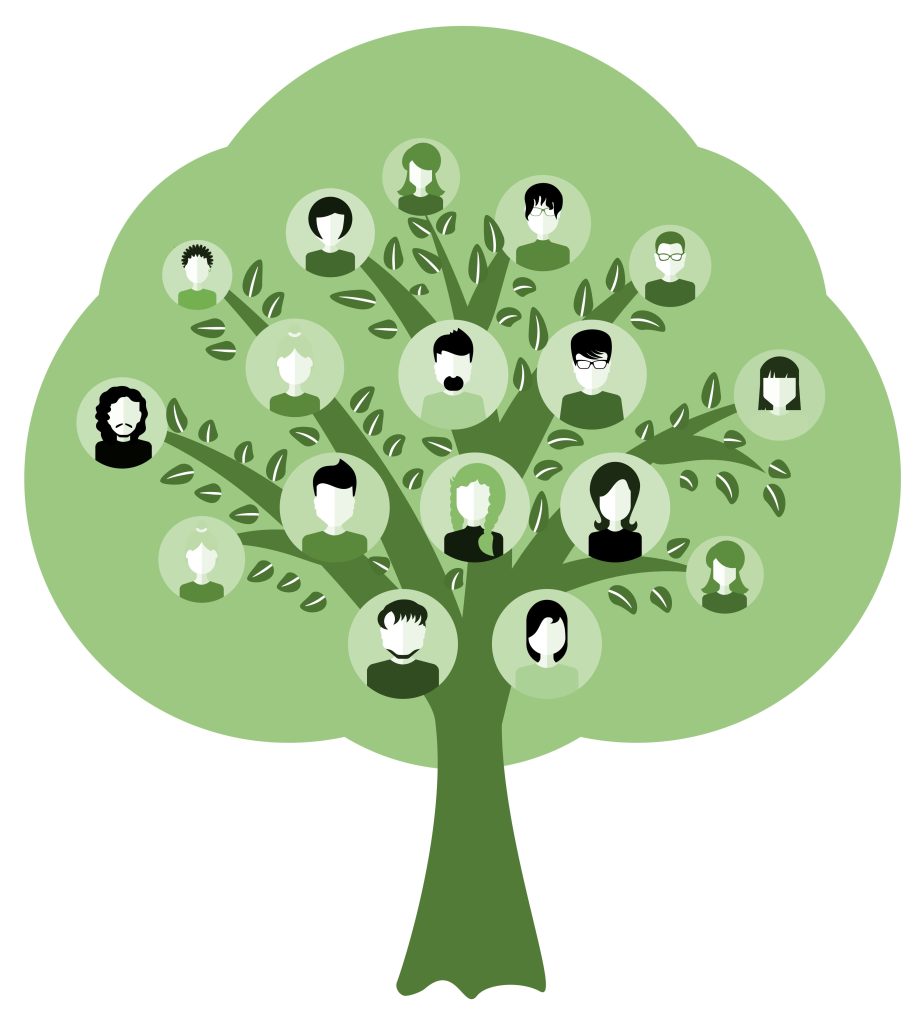Learning your family health history can reduce your cancer risk

Your family health history may seem like a gloomy topic to bring up with relatives, but gathering this information could help you lower your and your immediate family’s risk of developing or dying from diseases such as cancer.
Cancer and other conditions often run in families, either because they are passed down through genes (inherited) or due to a family’s shared environmental factors, such as air quality, common occupations, and habits like smoking. What you learn from your family health history can be useful to your doctor for preventing or treating disease.
Recording this history is as simple as identifying which relatives have developed or died from certain health problems. Here’s why you should consider it, along with some tips.
Why it matters
Although inherited genes account for only 5-10% of cancer cases, certain cancer types are due to genetics more than others. If you have a family history of breast, ovarian, uterine, or colorectal cancer, you may have a higher risk for developing these cancers. For example, according to the American Cancer Society, a woman with one of the gene mutations known as BRCA1 and BRCA2 has up to a 7 in 10 chance of getting breast cancer by age 80.
Genetic mutations make a person more likely to develop cancer, but they are not your destiny. Knowing you have a genetic mutation can help you and your doctor take steps to identify it in the earliest, most treatable stage.
Cancer can still occur among family members even when it is not inherited genetically. In this case, you and your doctor can determine what specific factors might be raising your risk.
What you can do
Your doctor can use your family history to recommend lifestyle changes and screening tests to limit your risk. If your family health history suggests that you may have a higher cancer risk, your doctor can refer you to a genetic counselor. Genetic counseling can be used to develop a personalized screening strategy, and genetic information might be used to target cancer cells more effectively if you do develop cancer.
Screening, in general, is an effective way to reduce death from cancers that may be inherited. A 2020 research paper published in Preventing Chronic Disease reported that screening 100% of study group participants would prevent 2,821 deaths from breast cancer, 6,834 deaths from cervical cancer, and 35,530 deaths from colorectal cancer over the lifetime of the participants.
Regardless of family history, all people can help lower their cancer risk by avoiding tobacco; maintaining a healthy weight; eating a diet rich in fruits, vegetables, and whole grains; and getting enough exercise.
What to record
The Centers for Disease Control and Prevention (CDC) recommends that you gather information about yourself and those who are related to you by blood, including:
- Parents and grandparents
- Aunts and uncles
- Sisters and brothers
- Nieces and nephews
- Children
Don’t include stepsiblings, stepparents, stepchildren, and other people in your family who are not blood relatives.
With regard to cancer, the information you gather should include:
- Who had cancer, and what kind of cancer was it?
- How old were they when diagnosed with cancer?
- Are they still living? If not, at what age did they die, and what caused their death?
Tips for collecting the history
- Consider talking with family members one on one. Create a safe space for your family members to talk openly about their health history.
- Ask questions. Ask your relatives what health conditions they have been diagnosed with and when they were diagnosed.
- Record the information. Write your family’s health history down, and be sure to update it from time to time. Some family members may be more comfortable writing their health history down rather than talking about it.
- Encourage your family members to record their health histories.
- Share your family’s health history with your doctor and other family members, but make sure you have permission from the family members you speak with.
Finally, you should make these conversations about more than just health and cancer. In the end, gathering your family health history is about getting more quality time with one another.
SOURCES:




